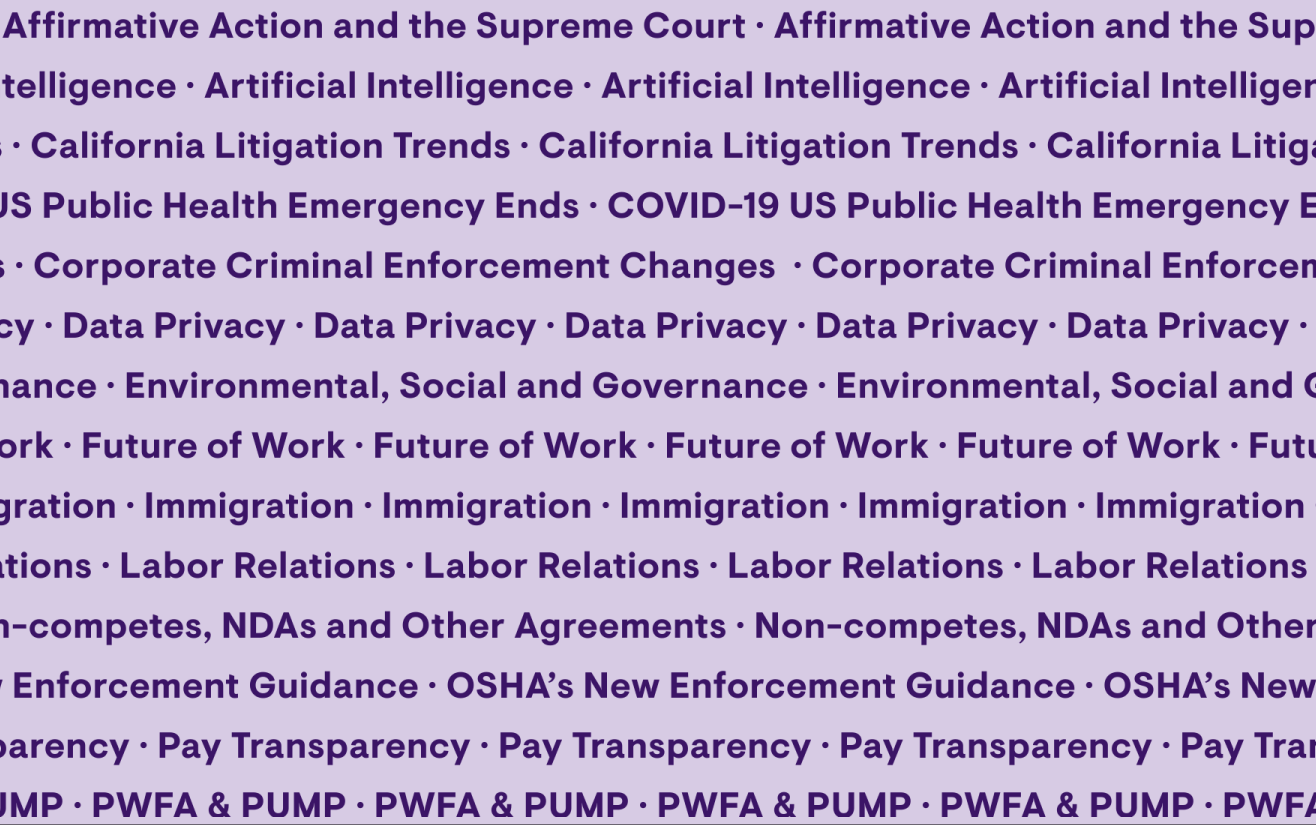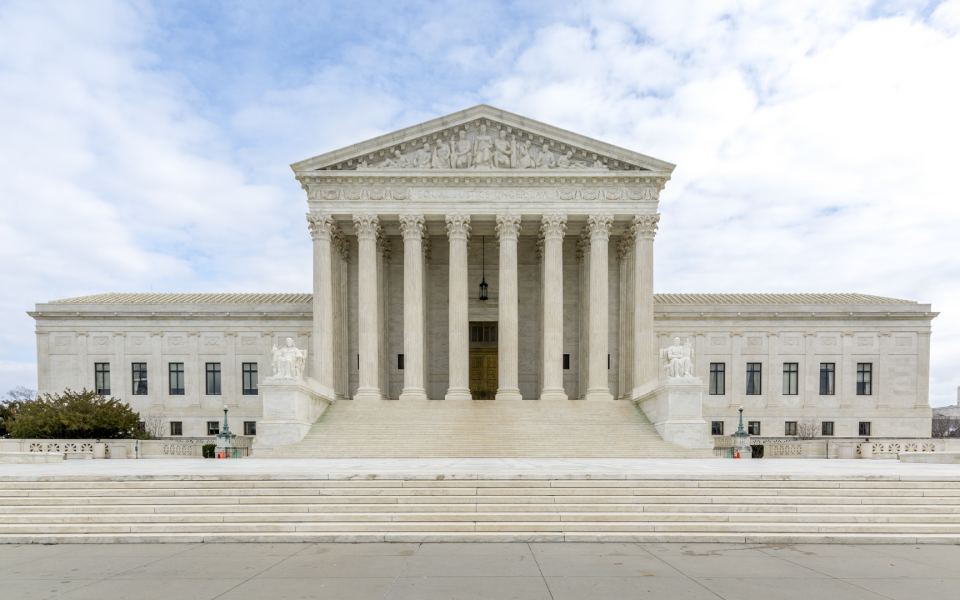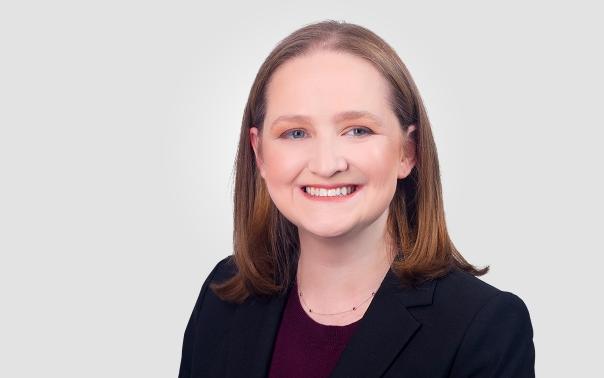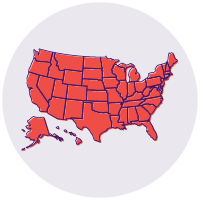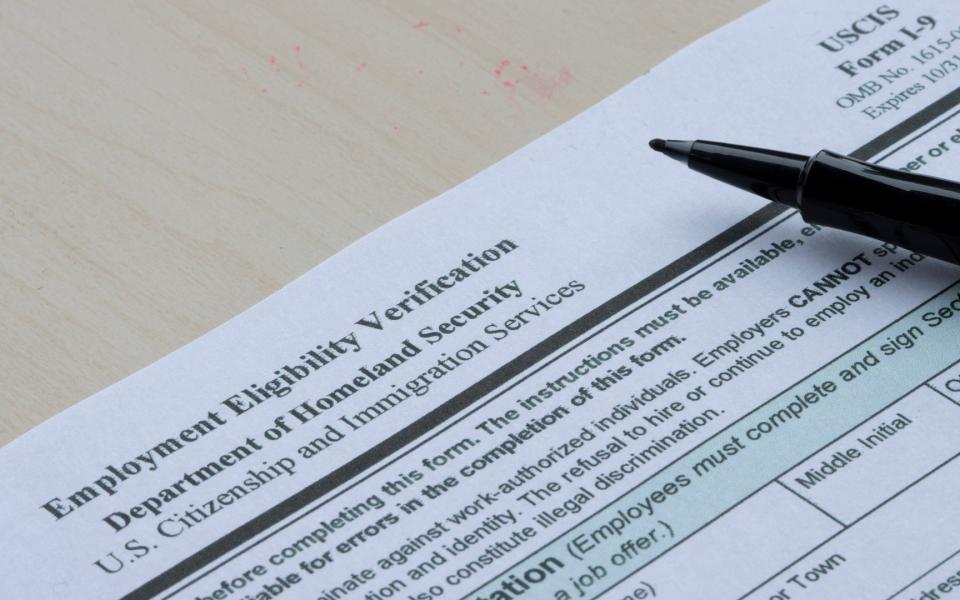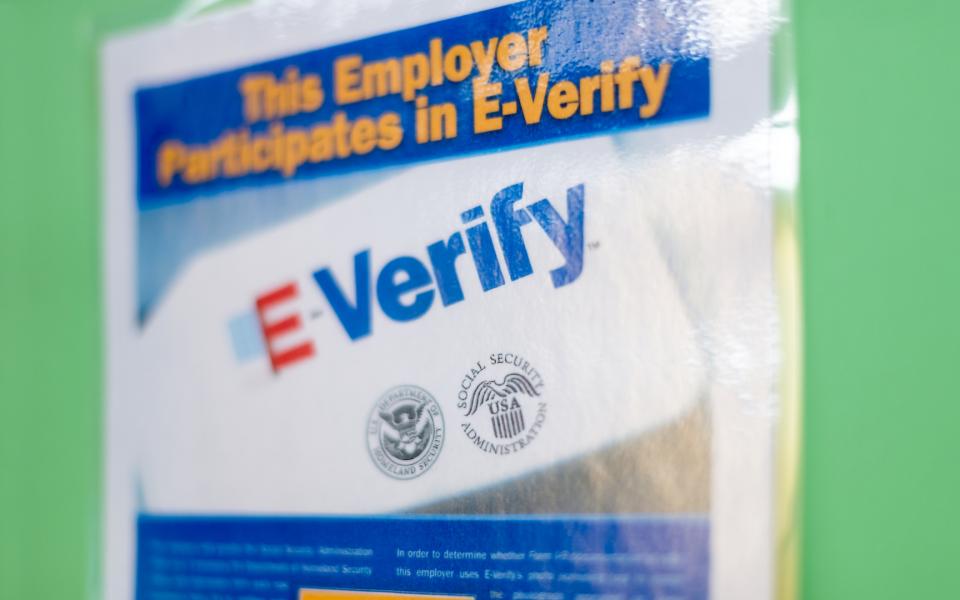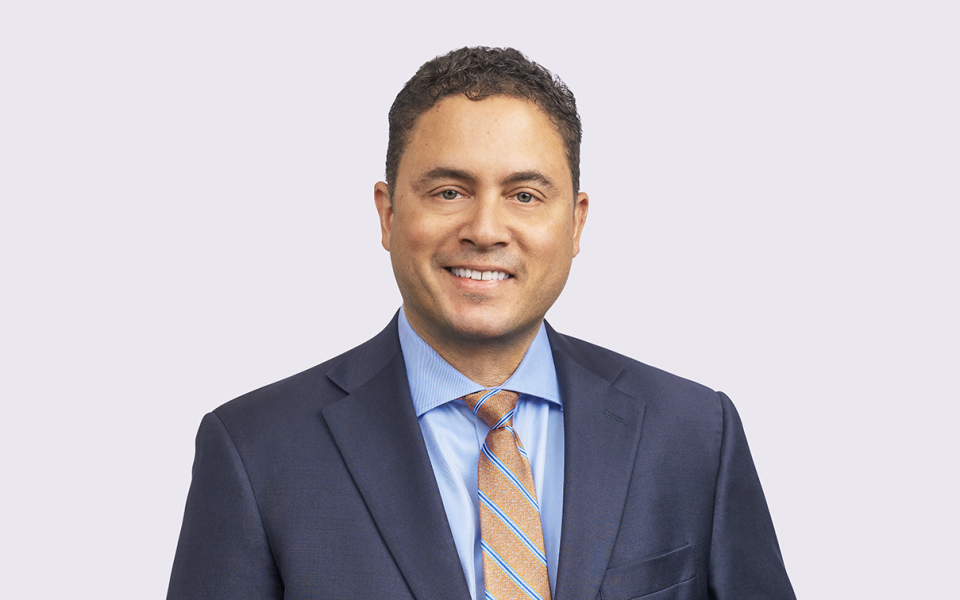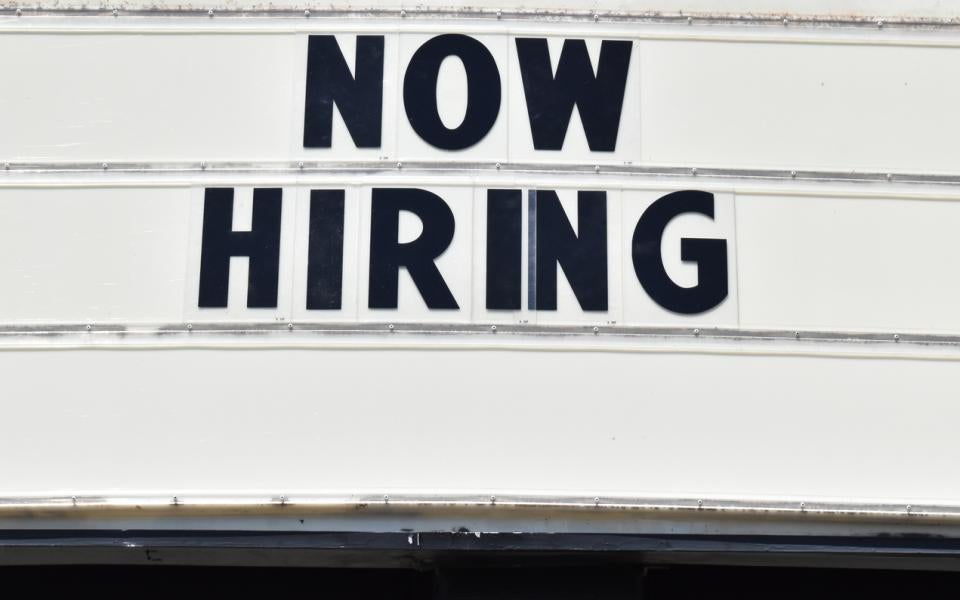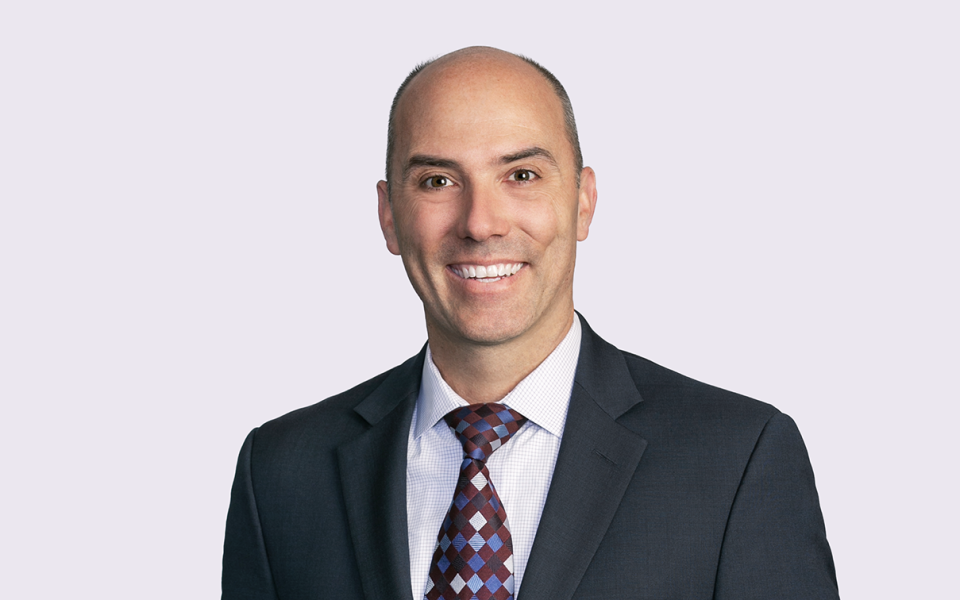Welcome to Our Mid-Year Report
The last six months have brought considerable changes in workplace law. The next six months look to bring even more. Click the tabs above to get this report’s up-to-the-moment mix of our attorneys’ informed podcasts, subject-matter highlights and insights on the topics of core concern to clients in 2023.
Discrimination: The Town + Gown Divide
The Court’s decision on race and higher-ed admissions doesn’t directly impact employment discrimination law, but employers should still beware. Get the nuances and expectations here.
Supreme Court’s Impact on Employers

Our insights into the Court’s cert and case decisions can help you better manage your compliance concerns and mitigate legal risks.
The Court’s affirmative action decision wasn’t the only “decidedly impactful” one for employers this term.
Major questions around religious accommodation, the FCA, the NLRA and state law pre-emption, “general personal jurisdiction” and more were also all decided.
Featured insights & news
Talk to a lawyer
AI 101: What It Is + How to Manage Its Application
With AI developing at a lightning pace and regulators rushing to catch up, we discuss the evolving set of city, state and federal laws and legislation bound to impact employers.
AI Use + the Practice of Law
AI is just the most recent in a long line of technologies that create questions of responsible use for employers and professional practitioners. Listen in for emerging codes of conduct.
Regulation on the rise: pending legislation
Previously we have seen states and cities pass regulations or statutes pertaining to the use of AI in the workplace, including New York City and Illinois. This year, the following states and localities have accelerated their looks into legislation concerning the use of AI in various ways:
- California
- Connecticut
- New Jersey
- New York
- Rhode Island
- Vermont
- Washington, D.C.
EEOC: ADA + AI
As part of its Artificial Intelligence and Algorithmic Fairness Initiative, the EEOC released a technical assistance document in 2022 about technology and disability discrimination that discusses where the ADA and technology intersect with the workplace.
To date, the most common ways an employer uses these technologies that could violate the ADA include:
- The employer does not provide a reasonable accommodation for an employee or applicant with a disability to be rated fairly and accurately.
- The tool used intentionally or unintentionally screens out individuals with disabilities.
- The tool violates the ADA restrictions on disability-related inquires or medical examinations.

Featured insights & news
Talk to a lawyer
State-Level Decisions Impacting How You Run Your Business
The California Supreme Court and the state appellate courts have both published and granted review in a number of important decisions affecting PAGA/arbitration, wage + hour, and related issues.
Our top 5 picks
We’re watching the following employer-impacting decisions currently up for review before the California Supreme Court:
Adolph v. Uber
Iloff v. LaPaille
Estrada v. Royalty Carpet Mills
Quach v. Cal. Commerce Club
Kuciemba v. Victory Woodworks

Featured insights & news
Talk to a lawyer
Employer checklist
The U.S. COVID-19 public health emergency ended on May 11, 2023. States are following suit, but some state and local requirements remain.
Here are some key “to-dos” for employers who still have COVID-19 protocols in place:
- Assess whether those protocols make sense for their workplace considering the current COVID-19 circumstances.
- Revisit testing and vaccination policies.
- Review all accommodations for legal compliance given the changes.

Featured insights & news
Talk to a lawyer
In back-to-back speeches to the American Bar Association’s National Institute on White Collar Crime in early March, Deputy Attorney General Lisa Monaco and Assistant Attorney General Kenneth Polite announced several significant policy changes affecting corporate criminal enforcement by the DOJ.
Implementation at-a-glance
According to the Monaco Memo, to facilitate its implementation of the changes, the DOJ will:
- Rollout a three-year Pilot Program on Compensation Incentives and Clawbacks.
- Provide detailed guidance on how DOJ will consider — among other things — corporations’ approaches to, and compliance programs concerning, employees’ use of personal devices, communications platforms and messaging applications.
- Signal a “significant restructuring” of and surge in resources for the National Security Division (NSD), which will include the addition of more than 25 new prosecutors who will investigate and prosecute sanctions evasion, export control violations and similar economic crimes.

Featured insights & news
Talk to a lawyer
Leveraging Compliance Commonalities + Getting Ahead of Risks
As more states increasingly pass privacy laws, pursuing business goals without assuming unacceptable levels of data privacy and security risk is key for employers. Here's how to address near- and long-term concerns.
Top 4 client questions
- Are we subject to some or many of these laws, and what are our best options for coming into compliance efficiently and effectively?
- How does the general rise in class action lawsuits over website tracking technologies relate to data protection?
- How is employee-monitoring technology being used and what are the legal risks we need to navigate?
- What are the key AI-related risks we need to mind?

Common protections
Customers have the right to:
- Access personal data.
- Correct personal data.
- Delete personal data.
- Opt-out of personal data being sold.
Keep in mind, though, that despite these similarities, there are nuances in the laws. Be cautious; not all privacy laws are created the same.

Talk to a lawyer
Talk to a lawyer
Why Hybrid Is Here to Stay — and How You Can Make It Work for You
Hybrid work in its many forecasted forms is now one of the toughest topics for employers, touching on workplace issues of culture, productivity and fairness.
Featured insights & news
Talk to a lawyer
Looking Forward to Forward-Looking I-9s
The world of I-9s is moving, including the end of COVID-19 flexibility and DHS’s just-released final rule allowing a permanent virtual I-9 review option for E-Verify users, which goes into effect August 1 — the same day DHS releases a new I-9 form.
Temporary I-9 flexibility ends July 31, 2023
Employer compliance checklist
30 days (instead of three) to conduct physical examinations.
- Prepare lists of employees who were verified remotely.
- Train staff.
- Consider using authorized agents, if necessary.
Considerations: A DHS final rule published July 25, 2023, makes qualified employers’ virtual inspection of I-9 original documentation a permanent option as of August 1, 2023.
Additionally, a new version of Form I-9 (Rev. 08/01/23), consistent with the new rule, is available starting August 1, 2023 (although the current form (Rev. 10/21/19) can be used until October 31, 2023).

Featured insights & news
Talk to a lawyer
Preventing Flip-Flop Whiplash
Between the NLRB’s intense activity and the Supreme Court’s 8-1 decision in the rare labor case that makes its docket, precedent and policy changes are coming fast and furious in 2023.
What we’re seeing
The NLRB is digging deep into pending cases to make changes across a broad range of labor relations areas:
- Independent contractor standard.
- Separation and severance agreements.
- Assessments of misconduct in protected concerted activities, and remedies for repeat offenders.
- Access to employer property and the “overwhelming community of interest” standard.
Featured insights & news
Talk to a lawyer
Confidentiality and non-disparagement clauses
The NLRB returned to its pre-2020 standard restricting certain confidentiality and non-disparagement clauses in departing employees’ severance agreements. Severance pay cannot be conditioned on employees broadly waiving Section 7 rights. Agreements are unlawful if they have a reasonable tendency to restrict employees from:
- Pursuing ULPs or cooperating with NLRB investigation.
- Making public statements about working conditions to former employees, the media, or on social media.
- Disclosing terms of severance agreement to union or former employees.

Featured insights & news
Talk to a lawyer
Bigger Expectations + Bolder Enforcement
OSHA’s been busy in 2023 with its focus on “the vulnerable worker.” Heat illness, fall protection, PPE and more are all subjects of proposed rulemaking. And then, there’s its new IBI enforcement effort. . . .
In early 2023, OSHA began allowing its regional and area offices the discretion to issue Instance-By-Instance (IBI) citations in an effort to deter serious violations. Rather than issuing one citation and one penalty that incorporates all instances of a certain violation, an IBI citation can now be issued for each separate violation (even if found during the same investigation) with a separate penalty issued each time as well.
Infraction types
Reserved for more serious infractions, IBI citations for high-gravity serious violations of OSHA standards specific to:
- Falls
- Trenching
- Machine Guarding
- Respiratory Protection
- Permit-Required Confined Spaces
- Lockout / Tagout
- Other-than-serious Violations of OSHA Standards Specific to Recordkeeping

Relevant OSHA documents
Regional administrators and area directors have discretion to apply IBI penalty adjustments in appropriate cases to achieve a deterrent effect.

Featured insights & news
Talk to a lawyer
“The Avalanche Has Started . . . and It’s Not Stopping”
The volume of new and pending laws, the rapidness of their rollout and their variations across geographies all suggest that embracing the spirit of transparency is going to be easier than actually executing on it. Here’s how employers can anticipate emerging issues and evaluate options to better avoid enforcement.
Multistate employer alert
- Some laws apply as soon as you have one employee in that state (even if the employee is remote).
- Remote positions require compliance under these laws.

Featured insights & news
Talk to a lawyer
Waiting for the Regulations: What Will Key Terms Really Mean?
The PWFA’s obligations for employers to reasonably accommodate pregnancy, childbirth or related medical conditions, some of which seem ADA-like and others which do not, also call for the process to be interactive.
Both the Pregnant Workers Fairness Act (PWFA) and the Providing Urgent Maternal Protections for Nursing Mothers Act (PUMP For Nursing Mothers Act) were adopted as part of the Consolidated Appropriations Act, 2023 that President Biden signed on Dec. 29, 2022. PUMP took effect immediately, although changes to available remedies under it only took effect on April 28, 2023. The PFWA took effect on June 27, 2023, and the EEOC is expected to issue regulations by December 29, 2023.
- Applies to employers with 15+ employees.
- Requires employers to provide reasonable accommodations for temporary limitations on ability to perform essential functions of the job due to pregnancy, childbirth, or related medical conditions, unless it would cause an undue hardship.
- Prohibits employers from requiring employees to accept an accommodation other than a reasonable accommodation arrived at through the interactive process.
- Prohibits placing an employee on paid or unpaid leave if there is another reasonable accommodation available that doesn’t impose an undue hardship.
- Incorporates ADA meaning of reasonable accommodation and undue hardship.
- Prohibits retaliation.
- Applies to all employees (exempt and non-exempt).
- An employer with fewer than 50 employees is not subject to the requirements of the law if compliance would impose “an undue hardship by causing the employer significant difficulty or expense when considered in relation to the size, financial resources, nature, or structure of the employer’s business.”
- Additional exemptions for crewmembers of air carriers and certain employees of rail carriers and motorcoach service operators.
- Provides for breaktime and space to pump breast milk.
- Expands FLSA protections to include exempt employees for protected breaks for pumping.
- Break time may be unpaid for non-exempt employees, unless the employee expresses milk during an otherwise paid break period or is not completely relieved of duty for the entire break period, or if the break is otherwise required to be paid by another law or ordinance.
- Exempt employees should be paid their full weekly salary, regardless of whether they take breaks to express breast milk.
Featured insights & news
Talk to a lawyer
© Jackson Lewis P.C. This material is provided for informational purposes only. It is not intended to constitute legal advice nor does it create a client-lawyer relationship between Jackson Lewis and any recipient. Recipients should consult with counsel before taking any actions based on the information contained within this material. This material may be considered attorney advertising in some jurisdictions. Prior results do not guarantee a similar outcome.
Focused on labor and employment law since 1958, Jackson Lewis P.C.'s 950+ attorneys located in major cities nationwide consistently identify and respond to new ways workplace law intersects business. We help employers develop proactive strategies, strong policies and business-oriented solutions to cultivate high-functioning workforces that are engaged, stable and diverse, and share our clients' goals to emphasize inclusivity and respect for the contribution of every employee. For more information, visit https://www.jacksonlewis.com.
